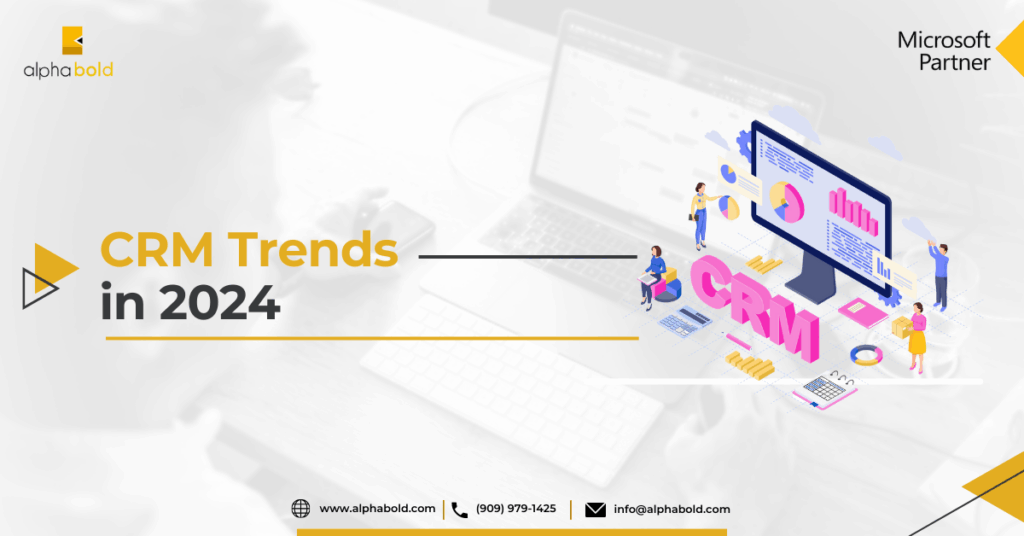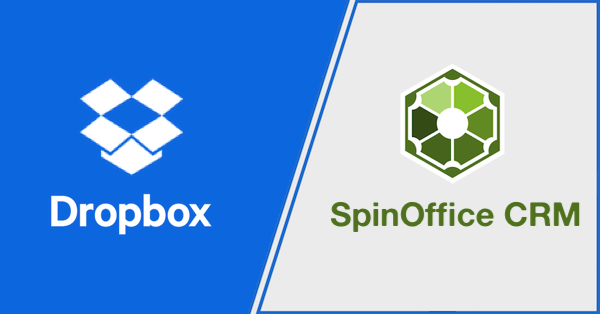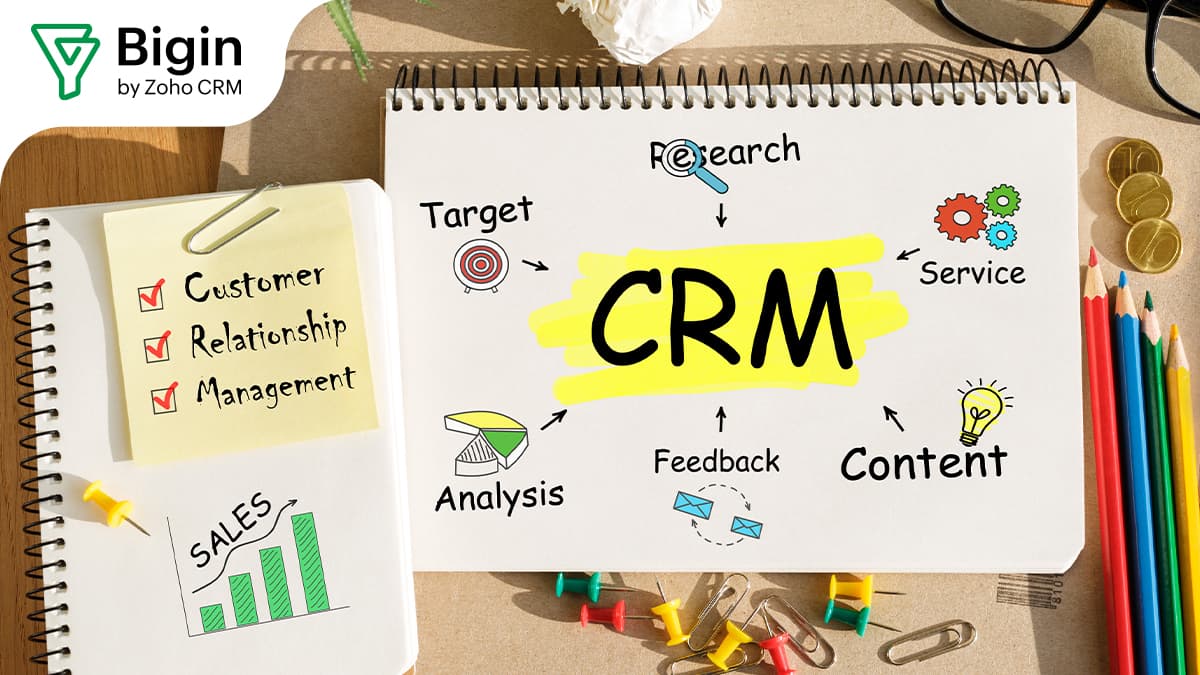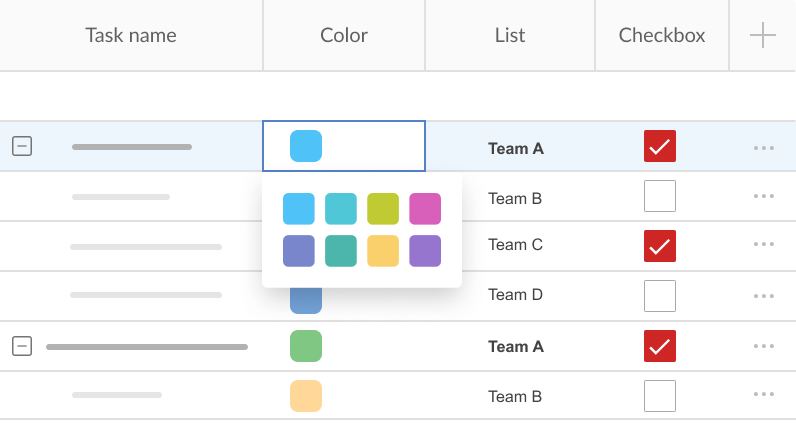Small Business CRM Trends 2025: Navigating the Future of Customer Relationships

Small Business CRM Trends 2025: Navigating the Future of Customer Relationships
The landscape of customer relationship management (CRM) is constantly evolving, and for small businesses, staying ahead of the curve is no longer a luxury, but a necessity. The year 2025 is just around the corner, and with it comes a wave of new trends that will reshape how small businesses interact with their customers. This article delves deep into the key CRM trends poised to dominate the small business sector in 2025, providing insights, actionable strategies, and a glimpse into the future of customer engagement.
The Rise of AI-Powered CRM
Artificial intelligence (AI) is no longer a futuristic concept; it’s a present-day reality, and its impact on CRM is profound. By 2025, AI will be deeply integrated into almost every facet of CRM, transforming how small businesses manage their customer relationships. Here’s how:
1. Predictive Analytics for Personalized Customer Experiences
AI algorithms will analyze vast amounts of customer data to predict future behavior, preferences, and needs. This will empower small businesses to deliver highly personalized experiences, anticipate customer desires, and proactively offer relevant products or services. Imagine a system that knows a customer is likely to need a new product six months from now, and automatically sends them a targeted offer. That’s the power of predictive analytics.
2. Automated Customer Service with Chatbots and Virtual Assistants
Chatbots and virtual assistants powered by AI will become the primary point of contact for many customer interactions. These intelligent systems can handle routine inquiries, provide instant support, and escalate complex issues to human agents. This frees up human agents to focus on more complex and strategic tasks, improving efficiency and reducing operational costs. This is not about replacing human interaction, but augmenting it.
3. AI-Driven Lead Scoring and Qualification
AI will revolutionize lead generation and qualification. By analyzing lead behavior, demographics, and online interactions, AI can identify the most promising leads and assign them a score, indicating their likelihood of converting into customers. This allows sales teams to prioritize their efforts and focus on the leads with the highest potential, leading to increased conversion rates and revenue.
4. Enhanced Data Analysis and Reporting
AI will automate the process of data analysis and reporting, providing small businesses with real-time insights into their customer relationships. This includes identifying trends, patterns, and anomalies that might be missed by human analysts. This will enable businesses to make data-driven decisions and optimize their CRM strategies for maximum impact.
The Growing Importance of Mobile CRM
In today’s fast-paced world, mobility is key. By 2025, mobile CRM will be even more critical for small businesses. Here’s why:
1. Access Customer Data Anytime, Anywhere
Mobile CRM allows sales and support teams to access customer information, update records, and manage interactions on the go. This means they can stay connected with customers regardless of their location, providing a seamless and responsive experience.
2. Real-Time Updates and Notifications
Mobile CRM systems provide real-time updates and notifications, ensuring that teams are always informed about important customer interactions and activities. This enables them to respond quickly to customer needs and opportunities.
3. Improved Collaboration and Teamwork
Mobile CRM facilitates collaboration and teamwork by allowing team members to share information, communicate with each other, and coordinate their efforts from their mobile devices. This enhances efficiency and improves customer service.
4. Increased Productivity and Efficiency
Mobile CRM streamlines workflows and automates tasks, freeing up sales and support teams to focus on more important activities. This leads to increased productivity and efficiency, allowing businesses to achieve more with less.
The Rise of Hyper-Personalization
Customers today expect personalized experiences. By 2025, hyper-personalization will be the norm, and small businesses that fail to embrace it will risk losing customers. This involves:
1. Understanding Customer Journey
Mapping and understanding the entire customer journey, from initial awareness to purchase and beyond, is crucial. This allows businesses to tailor their interactions and offers to each stage of the journey.
2. Tailored Content and Communication
Creating personalized content and communication that resonates with each customer’s individual needs and preferences. This includes personalized emails, targeted advertising, and customized website experiences.
3. Real-Time Personalization
Delivering personalized experiences in real-time, based on customer behavior and interactions. This could involve dynamically adjusting website content, offering personalized product recommendations, or providing instant support based on the customer’s current activity.
4. Data Privacy and Transparency
Hyper-personalization must be balanced with data privacy and transparency. Businesses must be transparent about how they collect and use customer data, and provide customers with control over their personal information. Earning customer trust is paramount.
The Integration of CRM with Other Business Systems
CRM systems are no longer isolated islands of data. By 2025, seamless integration with other business systems will be essential for small businesses. This includes:
1. Integration with Marketing Automation Platforms
Connecting CRM with marketing automation platforms allows businesses to automate marketing campaigns, personalize customer communication, and track the effectiveness of their marketing efforts. This creates a unified view of the customer and improves marketing ROI.
2. Integration with E-commerce Platforms
Integrating CRM with e-commerce platforms provides a 360-degree view of customer purchases, browsing history, and interactions. This enables businesses to personalize product recommendations, offer targeted promotions, and improve the overall shopping experience.
3. Integration with Social Media Platforms
Connecting CRM with social media platforms allows businesses to monitor social media conversations, engage with customers, and track brand sentiment. This provides valuable insights into customer preferences and enables businesses to respond quickly to customer feedback.
4. Integration with Accounting and Finance Systems
Integrating CRM with accounting and finance systems provides a complete view of customer financial data, including purchase history, payment status, and outstanding invoices. This streamlines billing processes, improves cash flow management, and provides a more holistic view of the customer relationship.
The Emphasis on Customer Experience (CX)
Customer experience (CX) will be the ultimate differentiator for small businesses in 2025. It’s not just about the product or service; it’s about the entire experience. Here’s how CX will evolve:
1. Proactive Customer Service
Businesses will move from reactive to proactive customer service, anticipating customer needs and providing support before they even ask for it. This could involve offering helpful tips, proactively resolving issues, or providing personalized recommendations.
2. Omnichannel Customer Support
Customers will expect seamless support across all channels, including email, phone, chat, social media, and self-service portals. Businesses will need to provide a consistent and integrated experience across all channels.
3. Personalized Self-Service Options
Providing customers with personalized self-service options, such as knowledge bases, FAQs, and chatbots, will be crucial. This allows customers to find answers to their questions quickly and easily, without having to contact a human agent.
4. Measuring and Analyzing CX
Businesses will need to measure and analyze CX metrics, such as customer satisfaction (CSAT), Net Promoter Score (NPS), and customer effort score (CES), to understand what’s working and what needs improvement. This data will inform CX strategy and drive continuous improvement.
The Rise of Data Privacy and Security
With increasing data breaches and privacy concerns, data privacy and security will be top priorities for small businesses in 2025. This includes:
1. Compliance with Data Privacy Regulations
Businesses will need to comply with data privacy regulations, such as GDPR and CCPA, to protect customer data and avoid legal penalties. This includes obtaining customer consent for data collection, providing data access and deletion options, and implementing data security measures.
2. Robust Data Security Measures
Implementing robust data security measures, such as encryption, access controls, and regular security audits, to protect customer data from unauthorized access and cyberattacks. This is not just about compliance; it’s about protecting customer trust.
3. Transparency and Data Governance
Being transparent about data collection and usage practices, and establishing clear data governance policies. This involves informing customers about how their data is used, providing them with control over their data, and establishing internal processes for data management.
4. Educating Employees on Data Privacy
Educating employees on data privacy best practices, including how to handle customer data securely and how to identify and report potential security threats. This creates a culture of data privacy within the organization.
Choosing the Right CRM for Your Small Business in 2025
Selecting the right CRM system is crucial for success. Here’s how to make the right choice:
1. Assess Your Needs and Goals
Before choosing a CRM system, assess your business needs and goals. What are your key challenges? What do you want to achieve with CRM? Define your requirements and prioritize your needs.
2. Research and Compare CRM Vendors
Research different CRM vendors and compare their features, pricing, and reviews. Consider the specific needs of your business and choose a vendor that offers the features and functionalities you need.
3. Consider Scalability and Flexibility
Choose a CRM system that can scale with your business as it grows. The system should be flexible enough to adapt to changing needs and integrate with other business systems.
4. Evaluate User-Friendliness and Support
The CRM system should be user-friendly and easy to use. Look for a vendor that offers excellent customer support and training resources. The easier it is to use, the more your team will adopt it.
5. Prioritize Data Security and Privacy
Ensure that the CRM vendor has robust data security measures in place and complies with data privacy regulations. This is essential for protecting customer data and building trust.
The Future is Bright: Embracing CRM Trends for Small Business Success
The CRM landscape is constantly evolving, and the trends shaping 2025 offer exciting opportunities for small businesses to improve customer relationships, increase efficiency, and drive growth. By embracing AI-powered CRM, mobile CRM, hyper-personalization, integration with other systems, and a strong focus on customer experience and data security, small businesses can position themselves for success in the years to come. The key is to be proactive, adaptable, and always focused on delivering exceptional value to customers.
Don’t be afraid to experiment with new technologies and strategies. The future of CRM is here, and the businesses that embrace it will be the ones that thrive. The journey to 2025 and beyond will be filled with challenges and opportunities. By staying informed, being adaptable, and prioritizing customer satisfaction, small businesses can navigate the future of customer relationships and achieve lasting success.
The trends discussed in this article are not just buzzwords; they are the building blocks of a successful CRM strategy. They represent a shift in how businesses interact with their customers, from a transactional approach to a relationship-focused approach. And it’s a shift that’s already underway.
As we move closer to 2025, small businesses must make informed decisions about their CRM strategy. This includes choosing the right CRM system, integrating it with other business systems, and training their teams on how to use it effectively. The investment in CRM is an investment in the future of your business.
The trends discussed in this article are interrelated and mutually reinforcing. For example, AI-powered CRM enables hyper-personalization, which improves customer experience. Mobile CRM allows for greater accessibility and responsiveness, which also contributes to a better customer experience. Integration with other systems streamlines workflows and improves efficiency, which frees up time for sales and support teams to focus on customer relationships.
Ultimately, the goal of CRM is to build stronger customer relationships, increase customer loyalty, and drive revenue growth. By embracing the trends of 2025, small businesses can achieve these goals and position themselves for long-term success. The time to act is now, and the rewards are substantial.
So, as you plan for 2025, consider the following:
- How can you leverage AI to personalize the customer experience?
- How can you make your CRM accessible on mobile devices?
- How can you integrate your CRM with other business systems?
- How can you improve your customer experience?
- How can you protect customer data?
By addressing these questions, you can create a CRM strategy that will help your small business thrive in 2025 and beyond. The future of customer relationships is exciting, and the possibilities are endless. Embrace the change, and prepare for a future where customer satisfaction is paramount.




